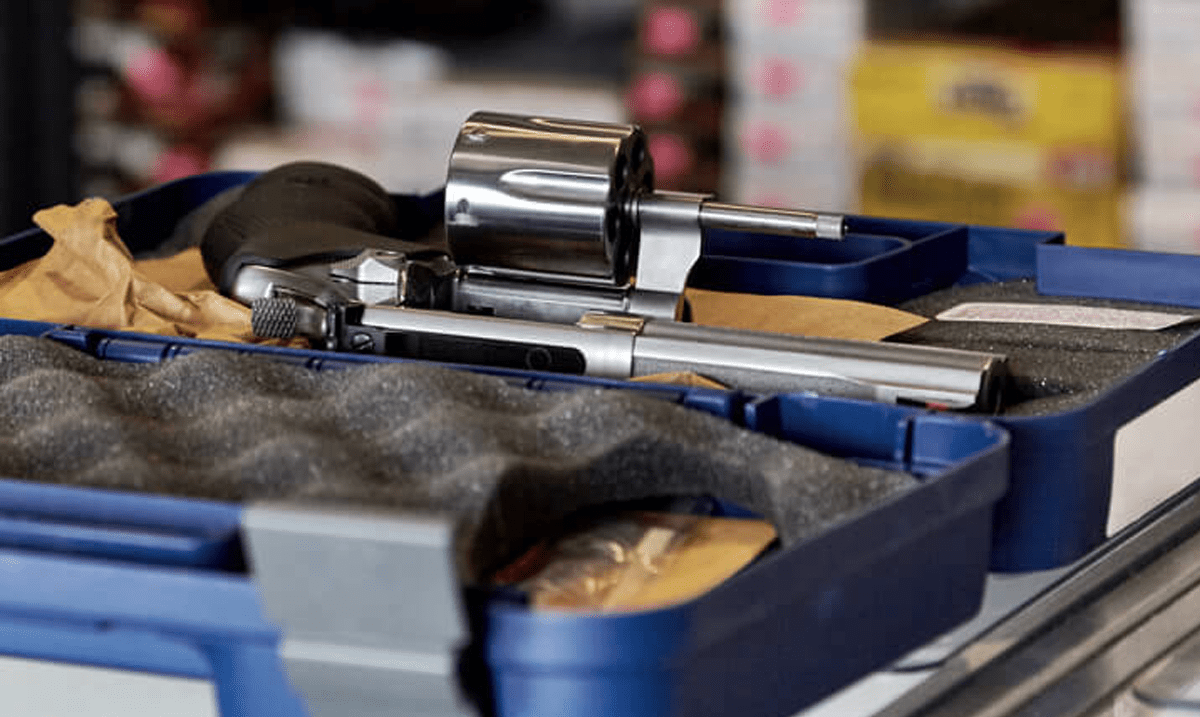 Back to News
Back to News
June 3, 2025
SCOTUS is Right About This – It Will Need to Address State Gun Bans
The U.S. Supreme Court finally answered the question of whether it will address the issue of states banning entire classes of firearms for ownership by law-abiding citizens. Unfortunately, the answer – for now at least – is “not yet.”
That’s frustrating, for sure. And not just for the plaintiffs in both Snope v. Brown and Ocean State Tactical v. Rhode Island. Those were the two cases challenging state prohibitions on the sale and possession of Modern Sporting Rifles (MSRs) and standard capacity magazines, respectively, that were petitioned to the Supreme Court. The Court denied certiorari for both cases, but not all justices were on board. Justices Clarence Thomas, Samuel Alito and Neil Gorsuch would have granted both petitions and taken up the issue of whether these hardware bans violate the Second Amendment. Justice Brett Kavanaugh voted to deny the Snope petition but warned that the Court is going to have to answer the questions – and do so rather soon.
NSSF submitted amicus briefs supporting the petitions in both cases. It’s safe to say, NSSF is just as disappointed by the Court’s denial of the petitions as any. In the amicus for Snope, NSSF argued that the U.S. Court of Appeals for the Fourth Circuit erred when it held that the MSR – or AR-15 style rifle – isn’t even an arm. The Fourth Circuit further held that the most-popular selling centerfire rifle in America – of which there are over 30 million in circulation today – is not a commonly-used firearm and is ill-suited and disproportionate to self-defense, and therefore doesn’t warrant constitutional protection.
NSSF Argued Fourth Circuit Used Wrong Test
NSSF argued the Fourth Circuit applied the wrong test in coming to the conclusion that Maryland’s MSR ban does not violate the Second Amendment. The test, as Justice Thomas wrote in Bruen – is just one step and the only question is whether the law violates the U.S. Constitution, as informed by history and tradition. Instead of applying that framework, the Fourth Circuit applied an “interest balancing” test – which the Court expressly determined in Bruen was out of bounds. Indeed, the Supreme Court has already explained that weapons in common use for self-defense may not be banned, and yet the Fourth Circuit eschewed this explicit guidance to weigh for itself whether MSRs are truly useful for lawful purposes. That is exactly the type of interest balancing completely unmoored from the text of the Constitution that the Court rejected in Bruen.
What’s more, the Fourth Circuit ruled that Maryland could ban possession of MSRs because there are no existing bans on entire classes of handguns in the state. That logic defies what the Supreme Court held in Heller, as the decision explained that it is no answer to say that the government can ban possession of one firearm so long as possession of others is allowed. Once again, the Fourth Circuit openly and flagrantly ignored the Supreme Court’s admonitions on evaluating Second Amendment claims.
NSSF also submitted an amicus brief supporting the petition in Ocean State Tactical v. Rhode Island. That petition challenged Rhode Island’s ban on standard capacity magazines. NSSF argued that standard capacity magazines are “arms” under the plain text of the Second Amendment and therefore protected for use by law-abiding citizens. Just as there are over 30 million MSRs in circulation, NSSF conservatively estimates there are nearly one billion magazines with a capacity greater than 10 rounds, which is what Rhode Island passed a law to ban. And, indeed, nearly half of American gun owners possess at least one standard capacity magazine. That should put the common use test to rest. However, the U.S. Court of Appeals for the First Circuit upheld Rhode Island’s ban on a more “nuanced approach.” That approach, of course, isn’t what the Supreme Court prescribed and is the type of analysis the Court rejected when Justice Thomas wrote in the Bruen decision that there is one – and one only – test when it comes to the Second Amendment. NSSF noted the words of Justices Thomas, Alito and then Judge Kavanaugh affirming that Heller meant what it said: “If an arm is in lawful common use, it cannot be totally banned – full stop.”
Reckoning: ‘Next Term or Two’
For those of us in the firearm industry, we are frustrated and vexed over the Court’s decision to not address the question of hardware bans head on. Justices Thomas, Alito and Gorsuch all dissented from the Court’s decision to decline to take up Snope or Ocean State Tactical.
Justice Thomas wrote in the majority Bruen opinion, “The constitutional right to bear arms in public for self-defense is not a second-class right, subject to an entirely different body of rules than the other Bill of Rights guarantees. We know of no other constitutional right that an individual may exercise only after demonstrating to government officers some special need.”
He reiterated this bedrock principle in his dissent from the Court’s decision to turn down the Snope petition. Justice Thomas wrote that AR-15s are “clearly ‘Arms’ under the Second Amendment’s plain text.” He later added, “I would not wait to decide whether the government can ban the most popular rifle in America. That question is of critical importance to tens of millions of law-abiding AR–15 owners throughout the country.”
Justice Thomas noted that the Supreme Court has passed on taking up the issue of MSR bans for a full decade. He added, “I doubt we would sit idly by if lower courts were to so subvert our precedents involving any other constitutional right. Until we are vigilant in enforcing it, the right to bear arms will remain ‘a second-class right.’”
Because we only have noted dissents from Justices Thomas, Alito and Gorsuch, we can assume that Chief Justice John Roberts and Justice Amy Coney Barrett voted to deny certiorari, but neither wrote to explain why.
At least Justice Kavanaugh, despite agreeing with the Court’s decision to deny certiorari, wrote his own statement to explain his reasoning. “Although the Court today denies certiorari, a denial of certiorari does not mean that the Court agrees with a lower-court decision or that the issue is not worthy of review,” Justice Kavanaugh wrote. “The AR–15 issue was recently decided by the First Circuit and is currently being considered by several other Courts of Appeals. Opinions from other Courts of Appeals should assist this Court’s ultimate decision making on the AR–15 issue. Additional petitions for certiorari will likely be before this Court shortly and, in my view, this Court should and presumably will address the AR–15 issue soon, in the next Term or two.”
In short, Justice Kavanaugh appears to agree with Justice Thomas’s view that waiting more than a decade to address the lawful ownership of the most popular-selling semiautomatic centerfire rifle is likely long enough. The question needs to be answered, and we hope that Justice Kavanaugh’s prediction that the Court will take up the issue in the near term is correct. The Supreme Court cannot allow lower courts to continue to flagrantly ignore the precedent of Heller and Bruen and treat the Second Amendment as a second-class right.
Shelby Baird Smith is NSSF’s Chief Litigation Counsel.
You may also be interested in:
NSSF Report Reveals Firearm Magazines with Capacity Over 10 Rounds is National Standard
Categories: BP Item, Featured, Government Relations, Top Stories









